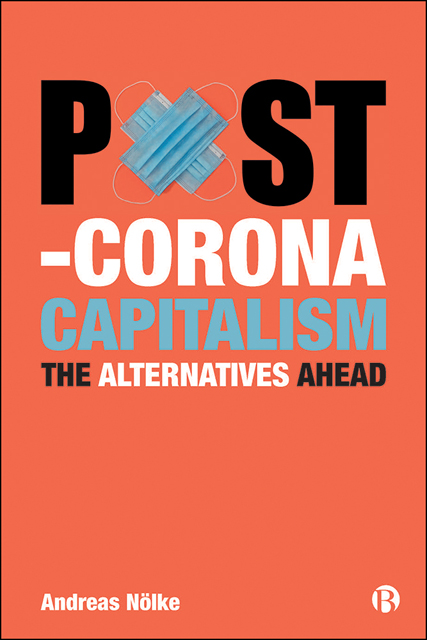Book contents
- Frontmatter
- Dedication
- Contents
- List of Abbreviations
- Acknowledgements
- Preface
- 1 Introduction: Confronting a Multidimensional Crisis of Capitalism
- Part I Capitalism and Society
- Part II Domestic Institutions of Capitalism on the Demand Side
- Part III Domestic Institutions of Capitalism on the Supply Side
- Part IV The International Institutions of Capitalism
- Part V Anthropocene Capitalism
- Part VI Geo-economic Shifts in Global Capitalism
- Part VII Ideologies in Contemporary Capitalism
- References
- Index
1 - Introduction: Confronting a Multidimensional Crisis of Capitalism
Published online by Cambridge University Press: 13 October 2022
- Frontmatter
- Dedication
- Contents
- List of Abbreviations
- Acknowledgements
- Preface
- 1 Introduction: Confronting a Multidimensional Crisis of Capitalism
- Part I Capitalism and Society
- Part II Domestic Institutions of Capitalism on the Demand Side
- Part III Domestic Institutions of Capitalism on the Supply Side
- Part IV The International Institutions of Capitalism
- Part V Anthropocene Capitalism
- Part VI Geo-economic Shifts in Global Capitalism
- Part VII Ideologies in Contemporary Capitalism
- References
- Index
Summary
Every few decades, the international economic system suffers an economic crisis, which changes its institutional path, in a way that dramatically affects the day-to-day operation of the system and the institutions it is embedded in. In such cases, we say that capitalism has been transformed and that we entered a new era in global capitalism. Among such events, we can name the Long Depression (1873–77), the Great Recession (1930s), the inflation shock (1970s) and the Global Financial Crisis (2007–09). Deep economic crises do not change capitalism by themselves; they rather provide a fertile ground for subsequent struggles about the economic order. They also are not isolated events, but rather parts of long-term processes that have started some time before – and will continue thereafter.
None of the crises listed in the previous paragraph revolutionized the economic system, but all of these crises transformed it: they accelerated processes that would have probably taken place irrespective of these events, they led to the dissolution of old institutions and created opportunities to the creation of new ones. The coronavirus crisis, like the transformative events named mentioned earlier, is likely to affect the nature of global capitalism. The pandemic marks the most severe global economic disruption since the Second World War. It has not only led to the most severe recession since the 1930s, but also to deep societal and political changes triggered by this recession.
When events of this scale happen, uncertainty regarding the future is very high, and societies try to collect any shred of knowledge in order to make sense of these monumental changes. The purpose of this book is to offer a broad but concise analysis of the political and economic dimensions of the coronavirus crisis – domestically and internationally – based on up-to-date knowledge about the operation, institutions and ideologies of contemporary capitalism and with a view on the potential alternatives that are still possible. Even if it is unclear when the coronavirus crisis will be over, negotiations about the post-coronavirus order have already begun. A crisis of this scale will serve as a magnifier for tensions that have been around for many years, but at the same time, it will open options that seem impossible in normal times.
- Type
- Chapter
- Information
- Post-Corona CapitalismThe Alternatives Ahead, pp. 1 - 8Publisher: Bristol University PressPrint publication year: 2022



